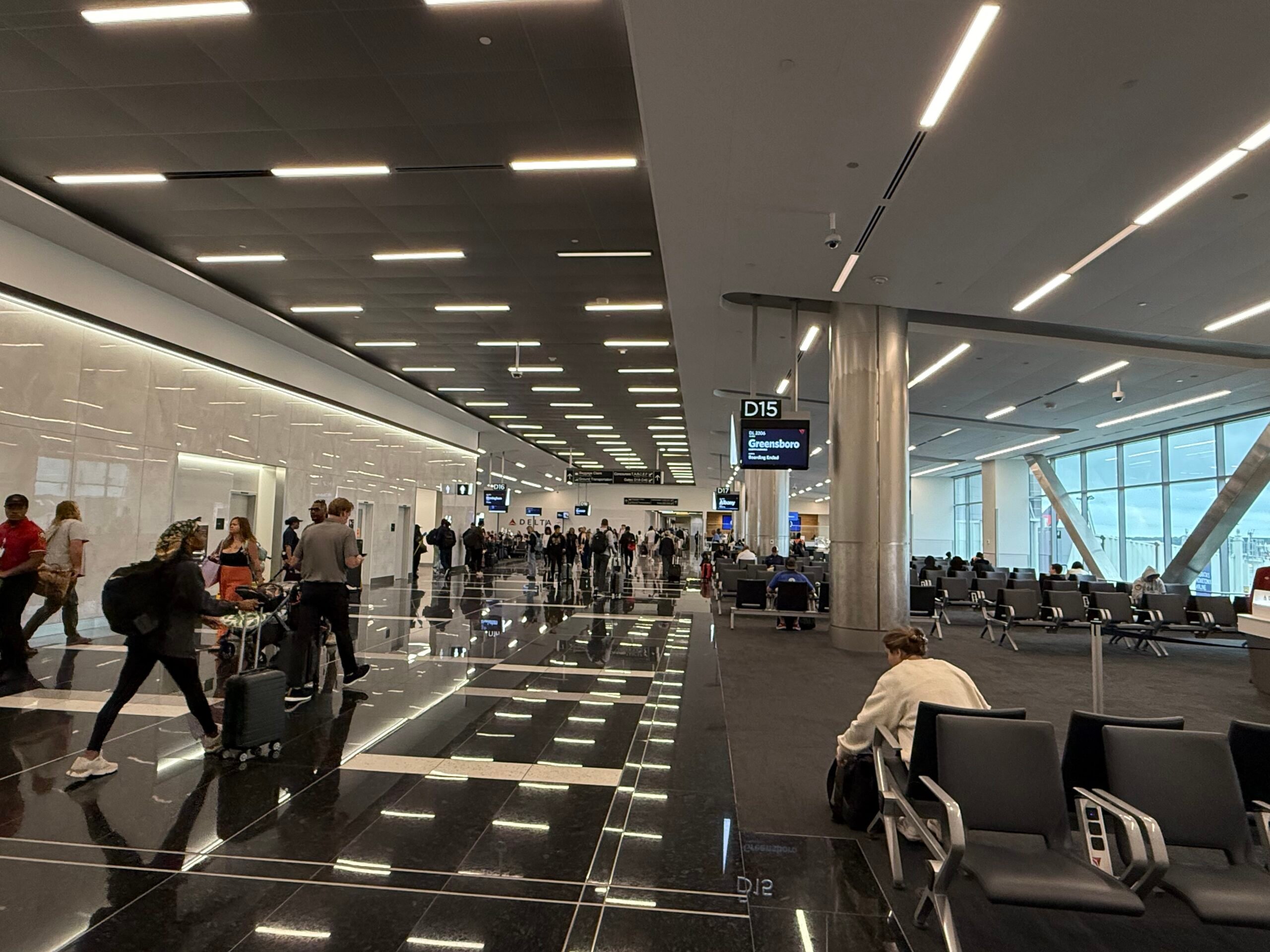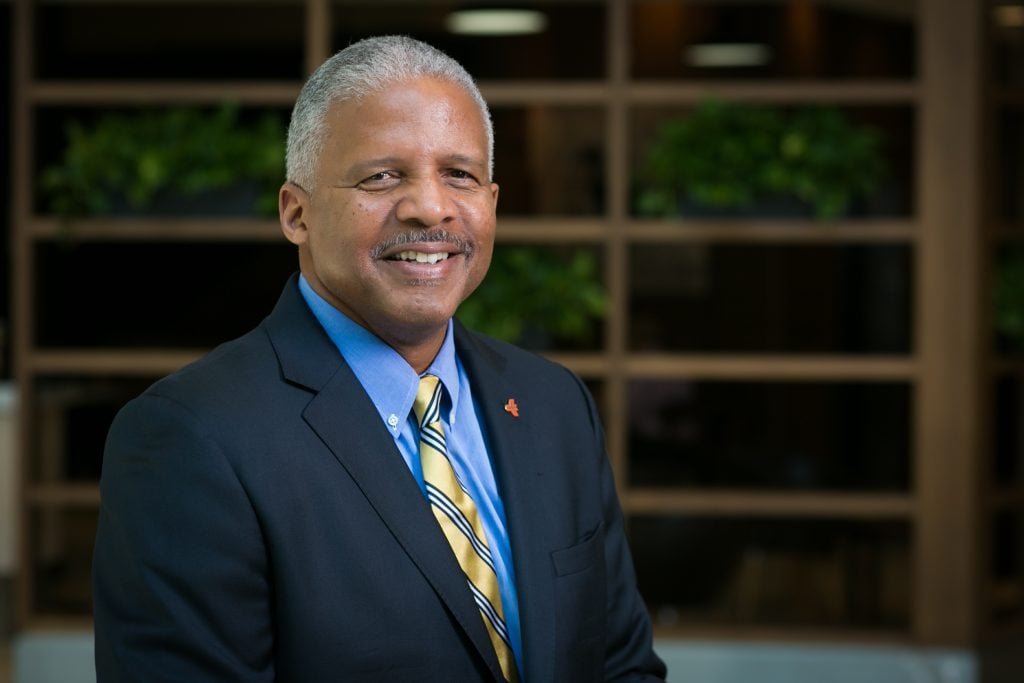Elevating Experiences.
Planning with Precision.

What is ATLNext?
ATLNext is an ambitious multibillion-dollar Capital Improvement Program (CIP) at Hartsfield-Jackson Atlanta International Airport (ATL), the world’s busiest and most efficient airport. This comprehensive program operates under three foundational pillars: Renewal and Replacement, Capacity Increases, and Customer Service. Through ATLNext, the Airport not only builds and reconstructs vital infrastructure but also pioneers advancements in technology and service, setting new standards in airport excellence and paving the way for the future of global air travel.
Renewal and
Replacement
The Renewal and Replacement pillar focuses on being proactive in maintaining and revitalizing our existing facilities through replacement of critical systems and infrastructure. We ensure that every component of the Airport remains at the forefront of safety, efficiency, and innovation. This includes the careful refurbishment of concourses, terminals, and parking facilities to adapt to an ever-evolving aviation landscape.
Capacity
Increases
Forecast at ATL has shown long-term continuous growth, and we must construct facilities to accommodate this growth. Capacity Increases aim to expand the Airport’s ability to accommodate growing passenger numbers and flight operations. This involves constructing new buildings, enhancing airside and landside facilities, and improving roadways to streamline traffic flow and minimize congestion.
Customer
Service
The Customer Service pillar emphasizes the enhancement of the passenger experience by integrating cutting-edge technology and innovative design, ensuring that every traveler enjoys a seamless journey from arrival to departure. We honor the Department of Aviation’s vision “to be the global leader in airport efficiency and exceptional customer service.”

Franklin Rucker
Frank Rucker is the Airport senior deputy general manager of Infrastructure. He oversees hundreds of Department of Aviation, program management and construction management personnel to ensure that all aviation facilities meet or exceed industry standards. He has more than 40 years of experience in civil engineering design and project management, with more than 20 years of progressive experience in the aviation facilities industry, directing sophisticated, sustainable design and construction projects.
Mr. Rucker has a rich history with Hartsfield-Jackson, having served as Assistant General Manager for Planning and Development. He also served previously as Director of Engineering, Planning and Development, where he was responsible for implementing the capital development program at ATL. He oversaw the construction of ATL’s fifth runway, innovative hold baggage screening system and a multitude of other complex projects.
Adrienne Ayers
Ashraf Demian
Tom Nissalke
Ana Maria Taroco
ATLNext Support Team

Chris Rogers
Director of Program Management Support Services

Tina Wilson
Director of Construction Management Support Services
Hartsfield-Jackson Development Program
CPTC Security Checkpoint
Expansion of checkpoints in multiple phases, from 18 lanes up to current day 32, with Computed Technology (CT).
2005
Hartsfield-Jackson Development Program
5th Runway ($1.3 Billion)
9,000 feet, full-length parallel taxiway, two 3,100 feet north/south taxiways, roughly 20 million cubic yards of earth placed utilizing a 5 1/2 mile conveyor
2006
Hartsfield-Jackson Development Program
Explosive Detection System ($180 Million)
Structural concrete bunker, 15 CTX screening machines (South Facility), 9 CTX screening machines (North Facility), and 12 CTX screen machines (International Facility)
2006
Hartsfield-Jackson Development Program
CONRAC ($605 Million)
Elevated APM, Operational Maintenance Facility, three rail stations, Quick turn-around facilities, two parking garages, and a Rental Car Administration Building.
2009
Hartsfield-Jackson Development Program
International Terminal Concourse F ($1.3 Billion)
Terminal and Concourse, 12 International Gates, Elevated roadways, and two parking structures.
2012
Hartsfield-Jackson Development Program
Airport Inbound Roadway Improvements ($67 Million)
Complete reconstruction of airport roadway under traffic
2015
ATLNext Capital Improvement Program
ATLWest Parking Deck ($210 Million)
5,500 parking spaces, Automatic Vehicle Identification, Electric Vehicle Charging Stations and Parksmart certified.
2020
ATLNext Capital Improvement Program
Domestic Terminal Canopies ($336 Million)
Increasing the customer experience using lighting and a weather protection covering.
2021
ATLNext Capital Improvement Program
South Deicing Facility ($160 Million)
Award winning facility to provide deicing services on the south side of the airfield for a variety of aircraft sizes and quantities.
2023
ATLNext Capital Improvement Program
Domestic Terminal Interior Enhancements ($34 Million)
Revitalizing the interior of both the north and south terminals with upgraded ceilings, lighting, and fire life safety enhancements.
